Camel Up is a racing and betting game.
Title: Camel Up
Year Published: 2014
Designer: Steffen Bogen
Publisher: Pegasus Spiele
Players: 2-8
Game Time: ~30 Mins
Set-up Time: >5 Mins
Ages: 8+
Theme: Modern Egypt
Mechanic: Betting, Dice Rolling, Racing.
How to win: Win the most money.
Game Description
In Camel Up, up to eight players bet on five racing camels, trying to suss out which will place first and second in a quick race around a pyramid. The earlier you place your bet, the more you can win — should you guess correctly, of course. Camels don’t run neatly, however, sometimes landing on top of another one and being carried toward the finish line. Who’s going to run when? That all depends on how the dice come out of the pyramid dice shaker, which releases one die at a time when players pause from their bets long enough to see who’s actually moving!
Camel Up Set Up
Sort leg betting tiles by colour in order 5-3-2 and put them in their spaces on the board.
Give each player a set of betting cards, £3 and a desert tile.
Then, roll the dice one at a time and put the Camels on space 1,2 or 3 depending on their die roll. Put them on top of a Camel if one is already there. Then put the dice in the Pyramid.
Youngest goes first.
Camel Up Game Play
The game is divided up in legs (when each camel has moved) and ends when a camel crosses the finish line. You can do one of 4 things on your turn…
1 – Take a leg betting tile
When you take one of these you’re backing that colour camel to be first/second at the end of the leg. You can have any amount of these each leg.
2 – Place your desert tile
You can put it on an empty space, not adjacent to another desert tile. If your tile is already on the board, you can take this action again later to move it using the same placement rules. The tile can be placed either side up with the Desert side moving camels forward one space, Mirage back one. If you move back you slide underneath the stack of Camels on that space. When a camel lands on Oasis tile, the owner immediately gains 1 coin.
3 – Take a Pyramid tile
Shake the Pyramid, release a die, move that camel that many spaces. When camels move, carry any camels on top of it with the camel on the top of a stack is considered ‘in front’. If moving forward, the stack lands on top of camels on that space but if they move backwards from a Mirage, it goes underneath the camels on the previous space.
4 – Bet on overall winner/loser
Place a betting card face down on either spot.
End of a leg
When the last camel moves, give the next player the 1st player token and score the leg.
Players then get paid for leg betting tiles for leading camels and £1 if it’s in second place. Other players lose £1 for other tile picked. Each player who took a Pyramid tile gains £1 for each.
Return all leg, pyramid and desert tiles, return the dice to the Pyramid and start the next leg.
Game End
As soon as the first camel crosses the finishing line the game ends. You carry out leg scoring as usual…
Turn the winner deck face up and resolve in order from card played first to last. Pay money in order of the cards being played with the 1st played gaining £8, then £5, £3, £2 then £1 to the rest. The owner of any card of the wrong colour pays £1 to the bank.
Repeat this process for the overall loser.
Most money wins, no tiebreakers
Camel Up Round-Up
New players often ask “what are my options again?” I know there are only 4 of them but they can take quite a bit of time to explain.
The game is short, too short really. In a larger group, you won’t take many actions per game and a lot of the time on your turn you’ve figured out which Camel will win the leg and your best action is to bet on it.
The game might only last 3-4 legs which aren’t as long as you think it might be.
The expansion, Supercup, adds a tonne of extra stuff and extends the game… but also extends the legs to maybe TOO long so I’m not sure all of the mini add-ons really make this game better.
It comes with a board extension which helps make the base game longer though, which is good. Also, the added options of moving Camels make it more random which kind of fixes that issue too.
Camel Up Rating
A good game when played with 4-6 players that can leave you with your head in your hands.
I give it 6/10
Camel Up Initial Review October 2014
The 2014 Spiel Des Jahres winner.
Camel racing with the worse dice shaker ever.
As soon as the first camel crosses the finishing line the game ends and you carry out leg scoring as usual.
Then you turn the winner deck face up and resolve in order from card played first to last with the first player picking the correct winner gaining £8, then £5, £3, £2 and £1 to the rest of the fortunate ones.
The owner of any card of the wrong colour pays £1 to the bank. This £1 doesn’t seem like much but it all adds up if you make too many rash decisions.
Repeat this process for the overall loser card which works in the same way as the winner.
Whoever has the most money wins and there are no tiebreakers. which is odd as the ‘highest place winner card’ should get it I would think… oh well.
Not a bad game… not Game of the Year either. Having played both Splendor and Concept I would put this one 3rd on the list.
Still, a cheap copy was available so I should own this by the weekend, so it can’t be that bad 🙂
Jesta ThaRogue
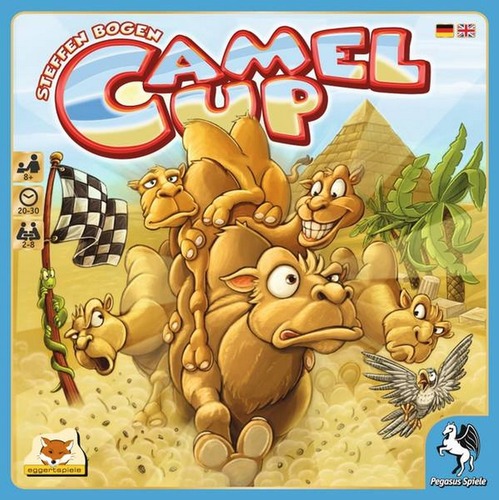

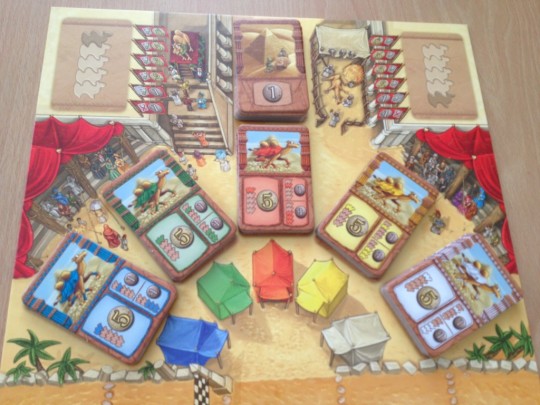
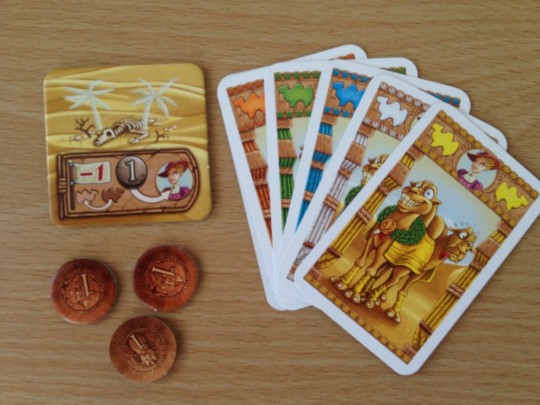
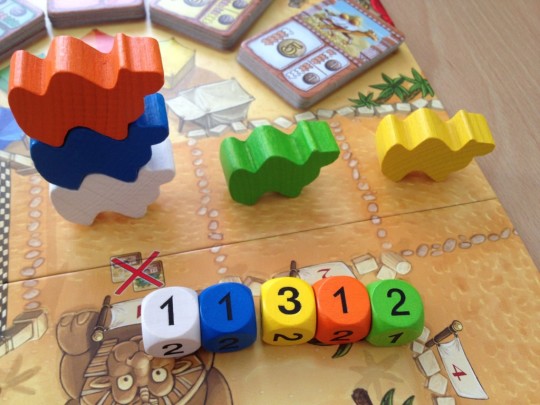
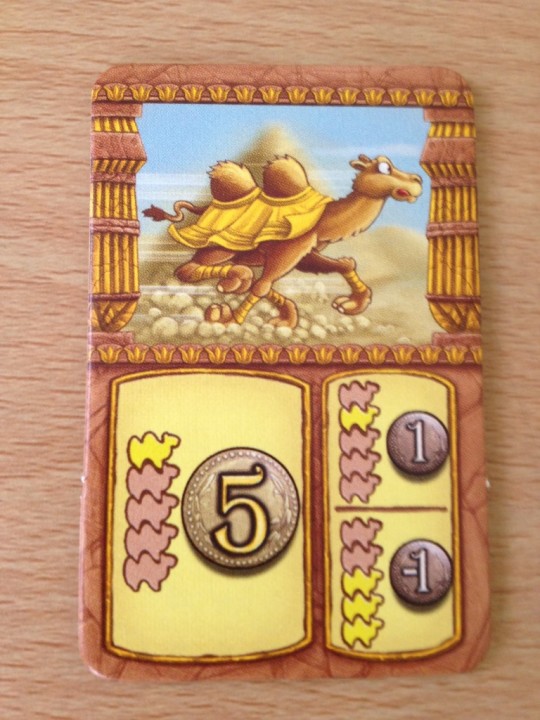
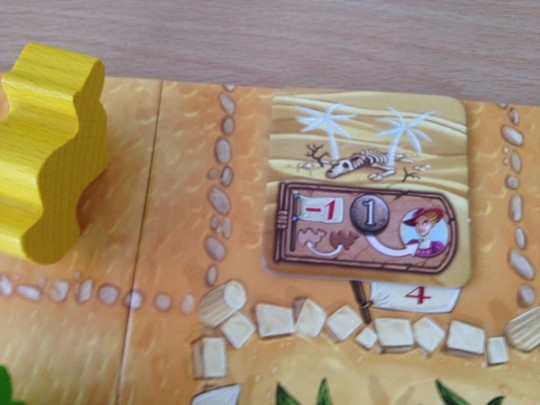
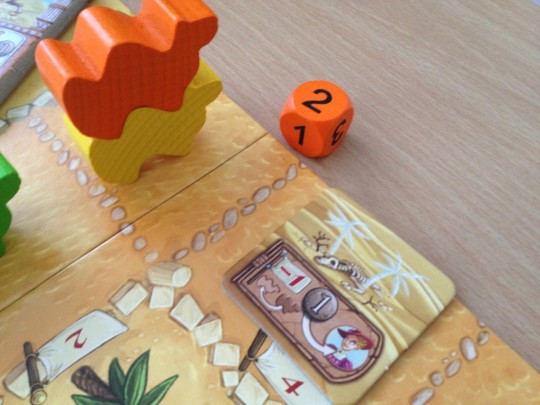
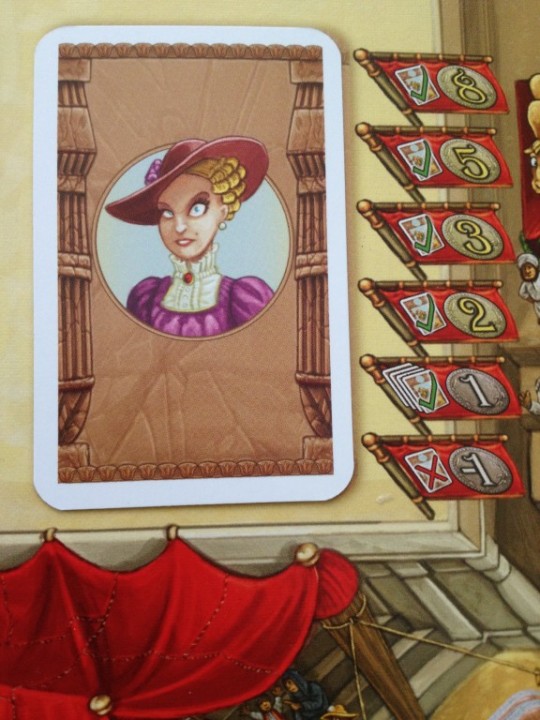
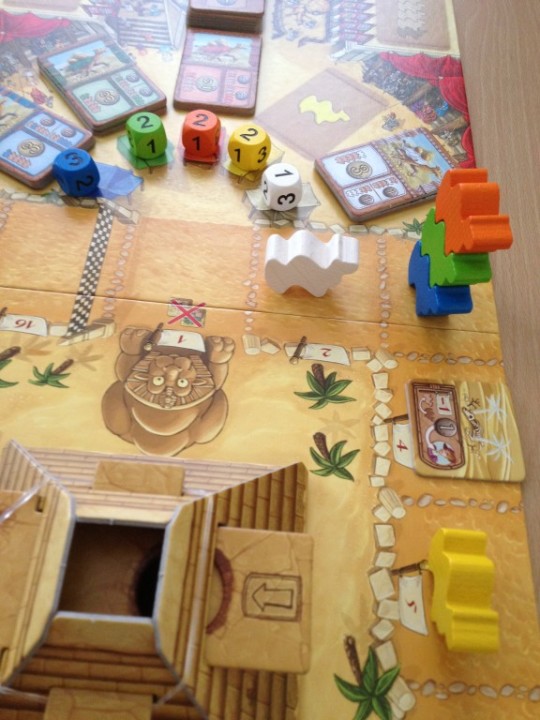
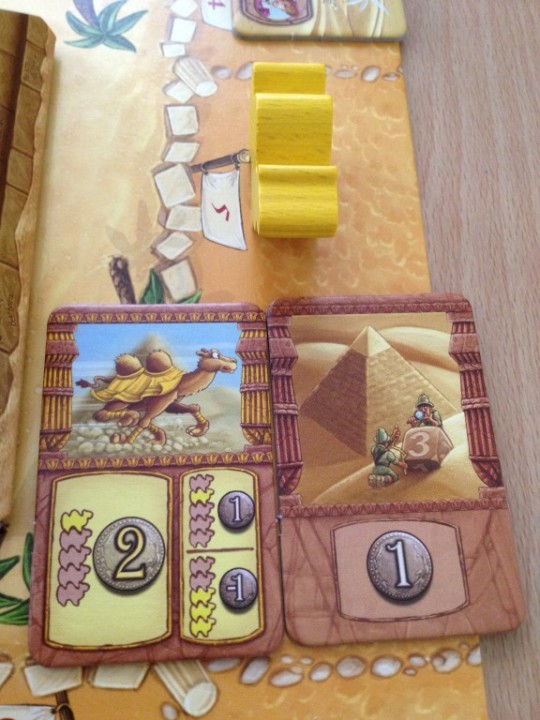
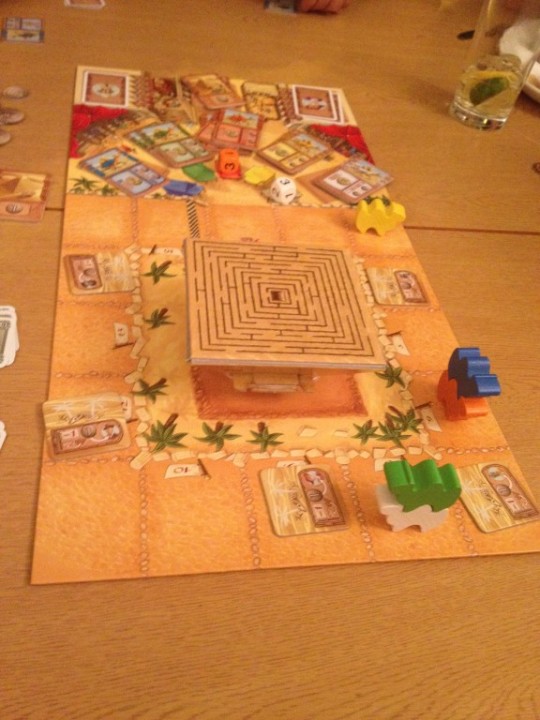
Leave a Reply